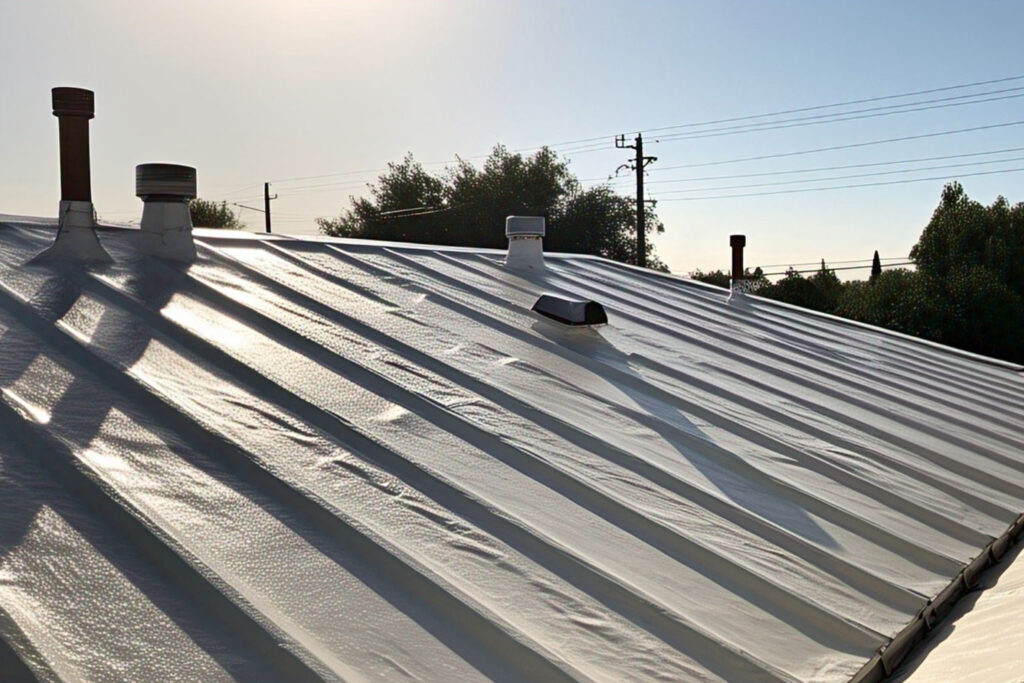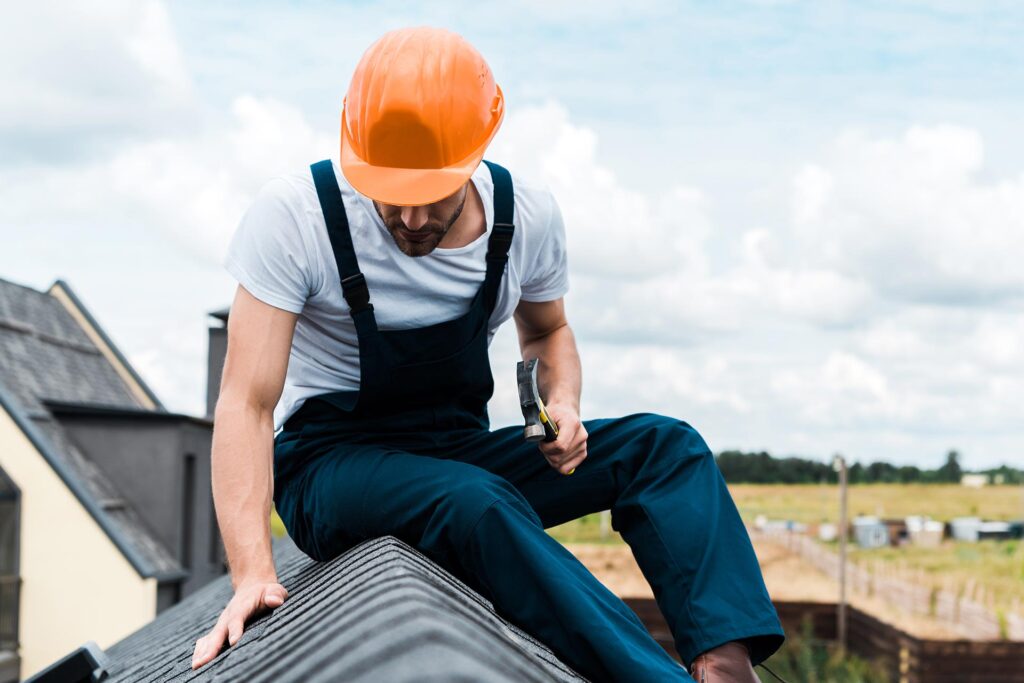When it comes to protecting your home or commercial building, applying a roof coating is one of the smartest moves you can make. Roof coatings offer many benefits—from extending the life of your roof to improving energy efficiency. But if there’s one thing that can undo all the good in just a few hours, it’s this: rain before the coating dries.
So let’s address the big question: How long does roof coating need to dry before rain for best results? The answer isn’t one-size-fits-all. The drying process depends on several factors including coating type, application thickness, weather conditions, humidity levels, and temperature.
As professional roofers serving our local community, Life Time Warranty Roofs is here to break down the drying time realities and best practices to make sure your roof coating delivers the protection it promises.
Why Drying Time Is Critical to Roof Coating Success
Let’s start with the basics. Does roof coating really need to dry completely before rain? Absolutely. If your roof coating is still wet and it rains, the water can interfere with the curing process. This may lead to blistering, cracking, streaks, and even wash-off—essentially wiping out the protection you just applied.
Whether you’re working with water based coatings, silicone coatings, or elastomeric roof coatings, the coating must cure properly to provide long-lasting protection. This curing process is essential to resist moisture, seal the roof surface, and enhance durability.
General Guidelines for Drying Time
- Here’s what most manufacturer’s recommendations say:
- Minimum drying time: At least eight hours in dry conditions
- Ideal full curing time: 24 to 48 hours
- Extended time needed in humid or cold weather: Up to 48 hours or longer
Keep in mind, the actual drying time can vary depending on weather, roofing materials, and application thickness.
Factors That Influence Drying Time
Let’s dig deeper into what affects how long roof coatings take to dry before rain becomes a risk.
1. Coating Type
Different coatings dry at different speeds:
Acrylic coatings: These water based coatings tend to dry faster in warm, dry weather.
Silicone coatings: Known for moisture resistance but usually need longer to fully cure.
Elastomeric coatings: A popular choice for flexibility and UV resistance, but sensitive to humid conditions during the drying process.
2. Application Thickness
Applying thin coats helps the coating dry faster and cure more evenly. Applying a thick layer may seem efficient but can trap moisture, extend the hours to dry, and make it harder to dry properly before rain hits.
3. Weather Conditions
The trifecta of temperature, humidity, and air movement plays a massive role:
- High humidity slows down the evaporation of water from water based coatings.
- Cold temperatures can dramatically delay curing, especially below 50°F.
- Warm sun and a slight breeze create ideal drying conditions.
- In low temperatures, expect longer drying time—even if the air feels dry.
Always check weather forecasts carefully before coating. At Life Time Warranty Roofs, we use hour-by-hour projections to ensure a coating application won’t be compromised by unexpected rain or moisture.
4. Roof Surface
Whether your surface is concrete, metal, or asphalt-based, the type and condition of your roof surface will impact absorption and drying. Surfaces that retain moisture will dry slower, especially if not primed properly.
What Happens If It Rains Too Soon?
If rain occurs before the coating has had time to dry properly, the consequences can vary:
- Light rain after a few hours might only affect appearance.
- Heavy rain within a few hours of application can wash away the coating entirely.
- Water can get trapped beneath the coating, leading to cracking, peeling, and mold over time.
To prevent damage, always avoid applying roof coatings when there’s any chance of rain within the next 24 to 48 hours.
Best Practices to Ensure Proper Drying
We’ve worked with hundreds of roofs across different weather zones. Here are a few best practices to keep your coating safe and effective:
- Monitor the Weather: Use multiple sources for weather forecasts, and look at the hourly breakdown—not just the general outlook.
- Time It Right: Apply coatings early in the day to give them maximum exposure to sunlight and air.
- Stick to Manufacturer’s Recommendations: Always follow specific instructions for curing time, coating thickness, and ideal weather conditions.
- Use the Right Tools: Proper brushes, rollers, or sprayers will help ensure even application thickness, which is essential for a successful drying process.
5. Don’t Rush It: Allow extra drying time in humid conditions, low temperatures, or when applying over textured or porous surfaces.
The Local Roofer Advantage
When it comes to roof coatings, there’s no substitute for experience—especially when that experience is local.
At Life Time Warranty Roofs, we’ve worked through every season and know how unpredictable the weather can be. We plan coating jobs around local weather conditions and don’t take shortcuts. Whether we’re working with elastomeric coatings, silicone coatings, or acrylic systems, we treat every project like it’s our own home.
The Many Benefits of Roof Coatings (When Applied Right)
When applied under the right conditions and given time to cure properly, roof coatings offer:
- Enhanced energy efficiency thanks to their reflective white color and ability to block solar heat
- Extended roof life by protecting against sun, moisture, and thermal expansion
- Waterproofing and leak resistance for older or vulnerable roofs
- Cost savings by delaying the need for a full roof replacement
But these benefits only come if you allow your coating to dry completely—and that means respecting the drying time.
Don’t Let One Rainstorm Ruin Your Roof Coating
A well-timed roof coating can add years of protection, save energy, and boost your home’s resilience. But applying a coating without regard to the weather forecast? That’s a gamble no homeowner should take.
How long does roof coating need to dry before rain? Give it at least eight hours, but aim for 24 to 48 hours of good weather. Watch the humidity. Watch the temperature. And if you’re unsure—call a trusted roof coating contractor like Life Time Warranty Roofs.
We’ll help you plan the job right, use the best roofing materials, and make sure your coating has the time it needs to dry properly and deliver long-lasting protection.
Need a roof coating consultation or emergency repair advice? Reach out to Life Time Warranty Roofs today. We’re always here to meet your roofing needs—rain or shine.


